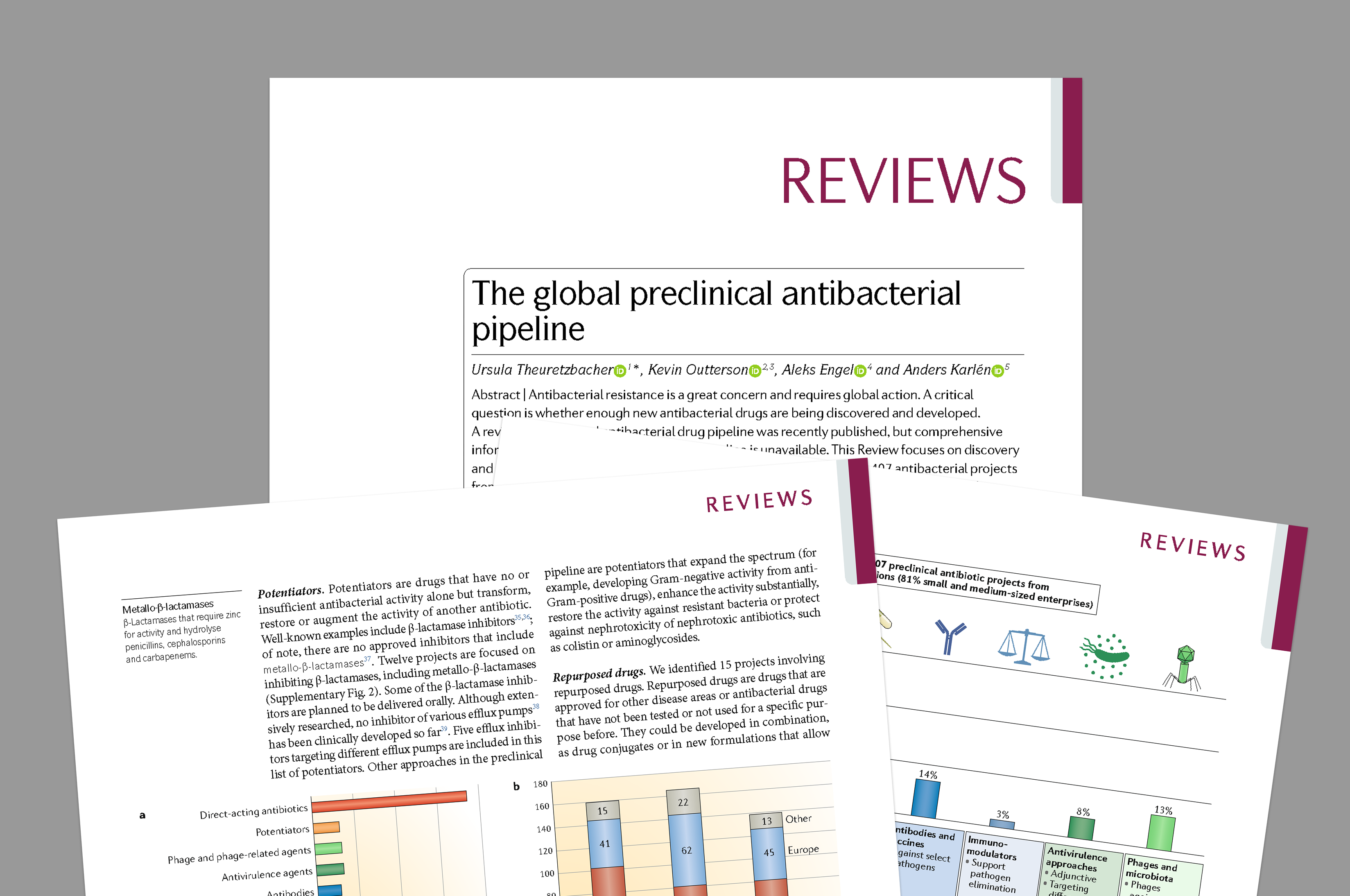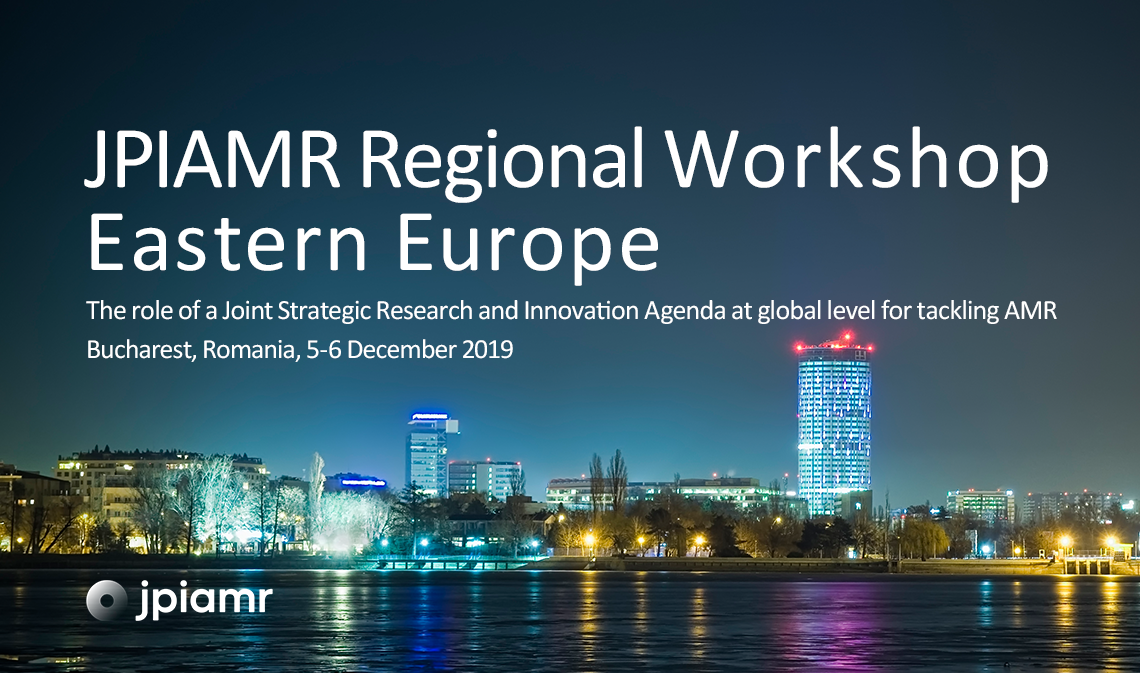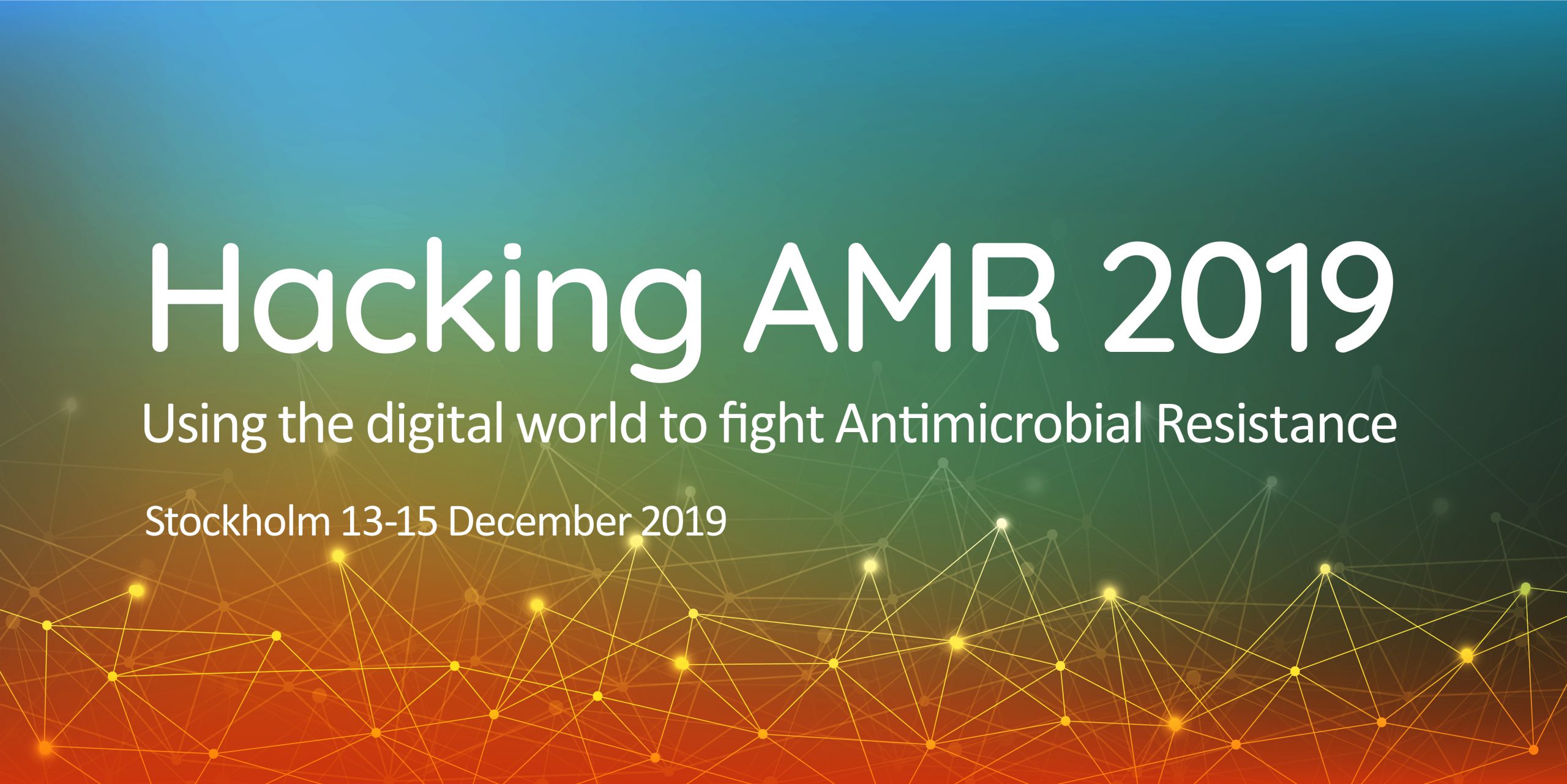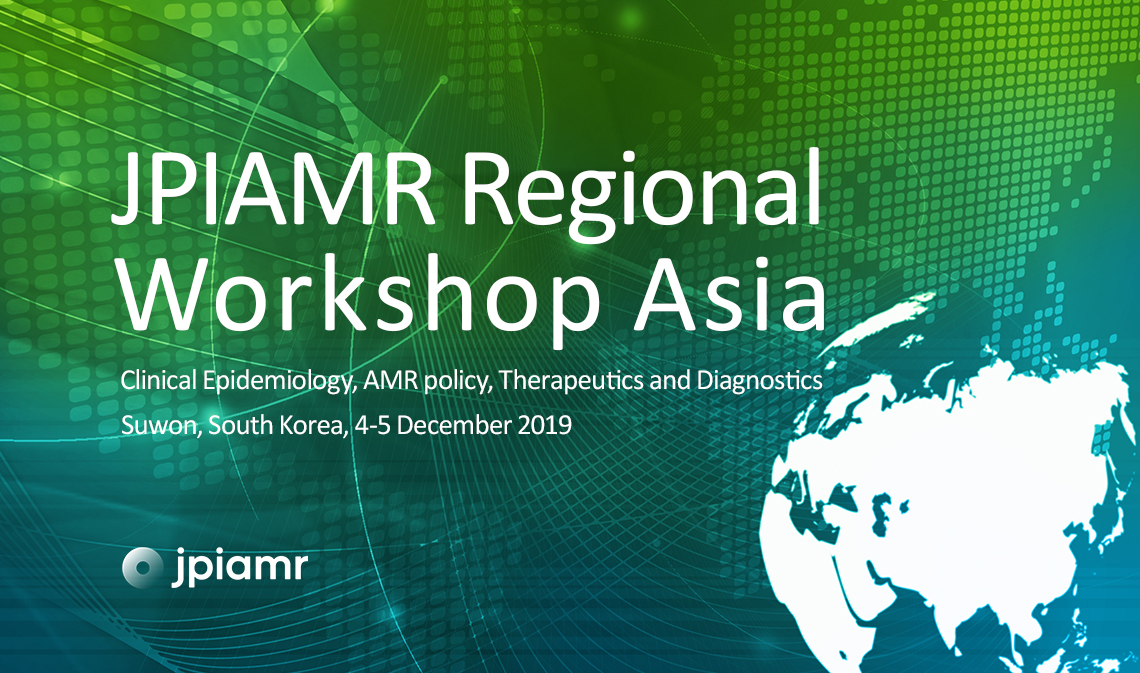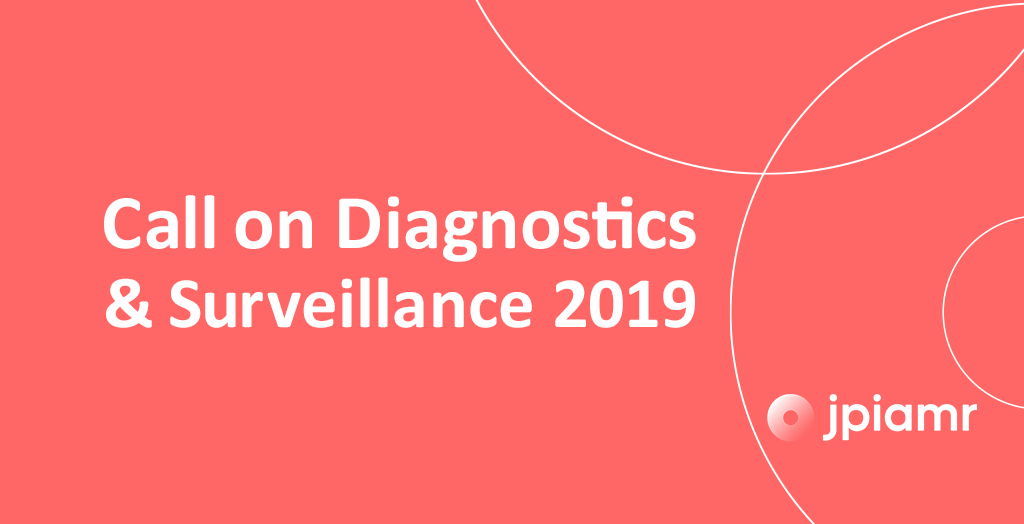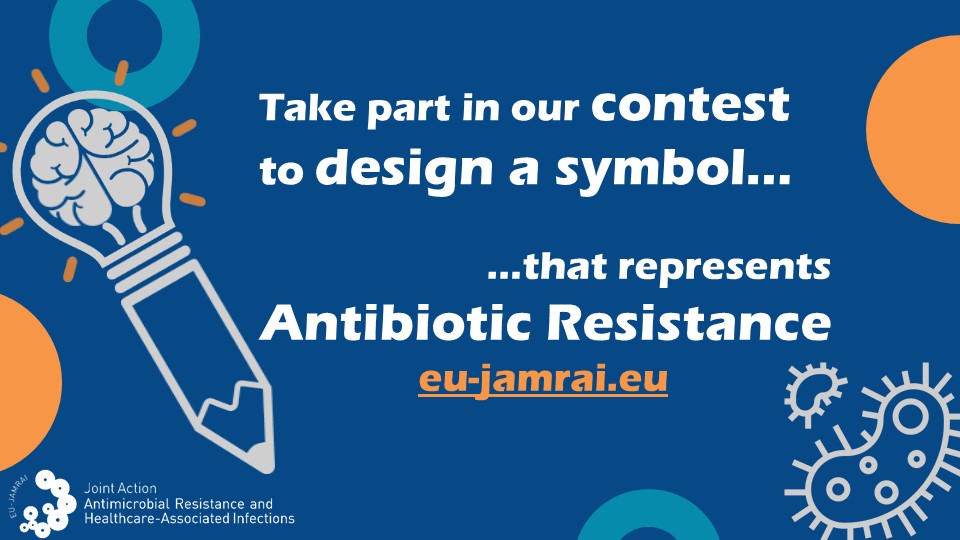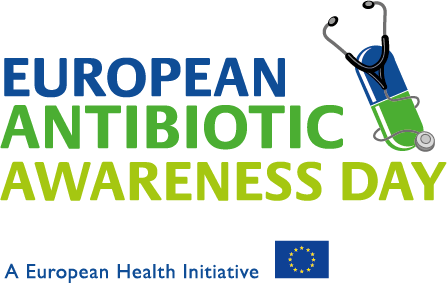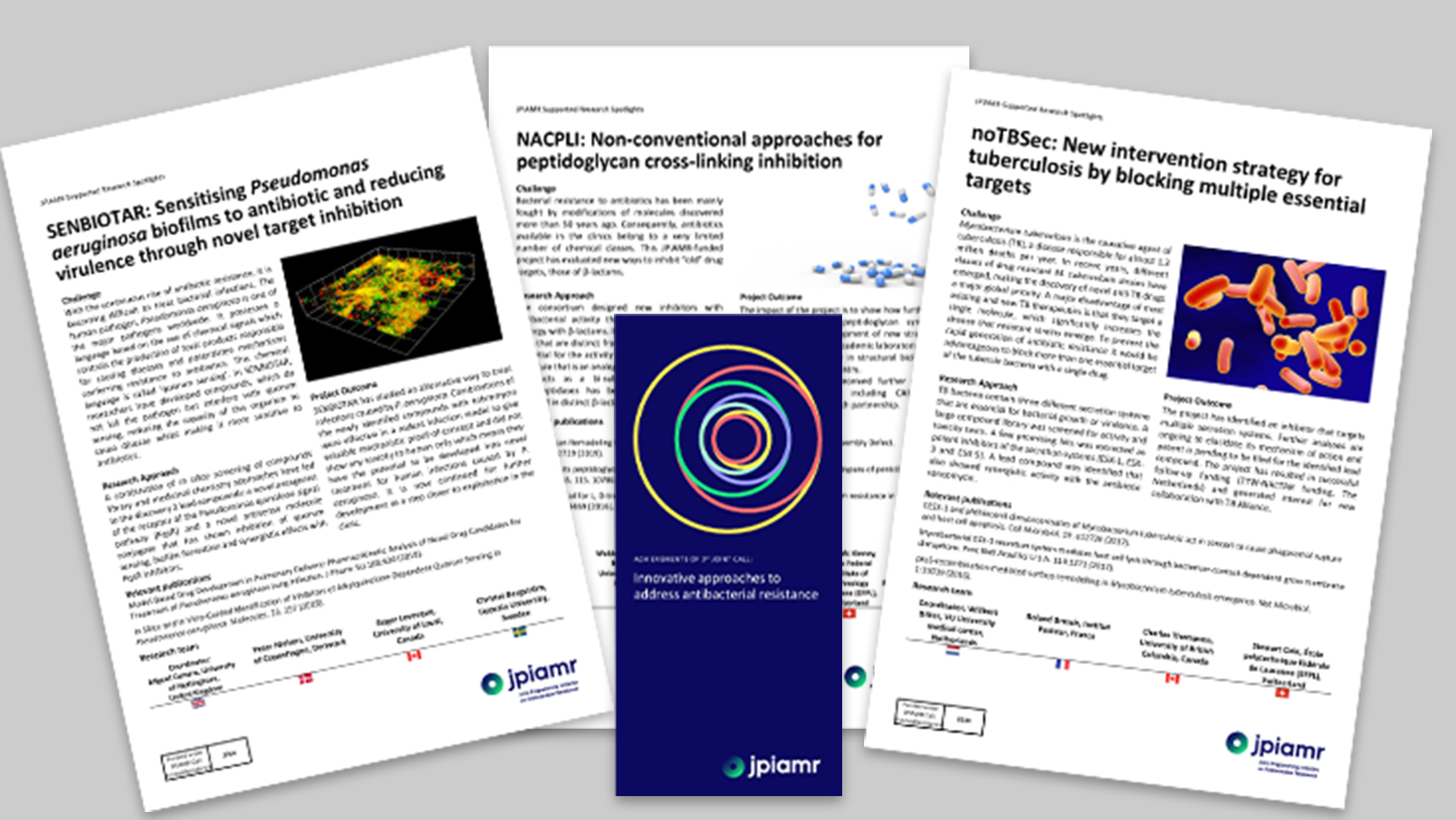A review article on “The global preclinical antibacterial pipeline” has been published recently in Nature Reviews Microbiology that provides comprehensive analyses on discovery and preclinical development projects that were at least in the lead generation phase (hit-to-lead phase) but had not yet reached first-in-human studies. The focus is to identify whether enough antibacterial drugs are being discovered and developed and provide decision support for all actors in this field. JPIAMR has supported WHO in the preclinical pipeline analysis and the contribution of JPIAMR has been acknowledged in the article.
Briefly, the review highlights that the current preclinical antibacterial pipeline consists of 407 highly diverse projects from 314 institutions, most of which are small and medium- sized
enterprises (SMEs). Less than half of the projects involve direct- acting small molecules and 70% of these aim at new targets. The focus is on Gram- negative pathogens, particularly bacteria on the WHO priority bacteria list. The preclinical pipeline shows a strong trend towards non- traditional approaches, including diverse antivirulence approaches, microbiome- modifying strategies, and engineered phages and probiotics.
The innovative potential and the high levels of diversity of the preclinical pipeline is encouraging but fragile. Of the many reasons highlighted, the dearth of funding available for clinical development of antibacterial therapies is a major challenge that contributes to barriers for progression of preclinical projects to human trials. Other than strong dependence on public and/or philanthropic funding, a long- term commitment of sustained push funding, pull incentives and new concepts for commercializing and delivering future therapies is necessary.
Download the full article (pdf 1 MB, opens in a new window)
A back to back viewpoint was also published in Nature Reviews Microbiology on the “Antibiotic development – economic, regulatory and societal challenges”. Seven experts, including one of the members of the JPIAMR Scientific Advisory Board (SAB), Ramanan Laxminarayan, highlighted the challenges that are contributing to the decline in antibiotic drug discovery and development. JPIAMR has been highlighted as one of the international initiatives aimed at incentivizing research and the development of new antibiotics.
Download the full article (pdf 0,8 MB, opens in a new window)
